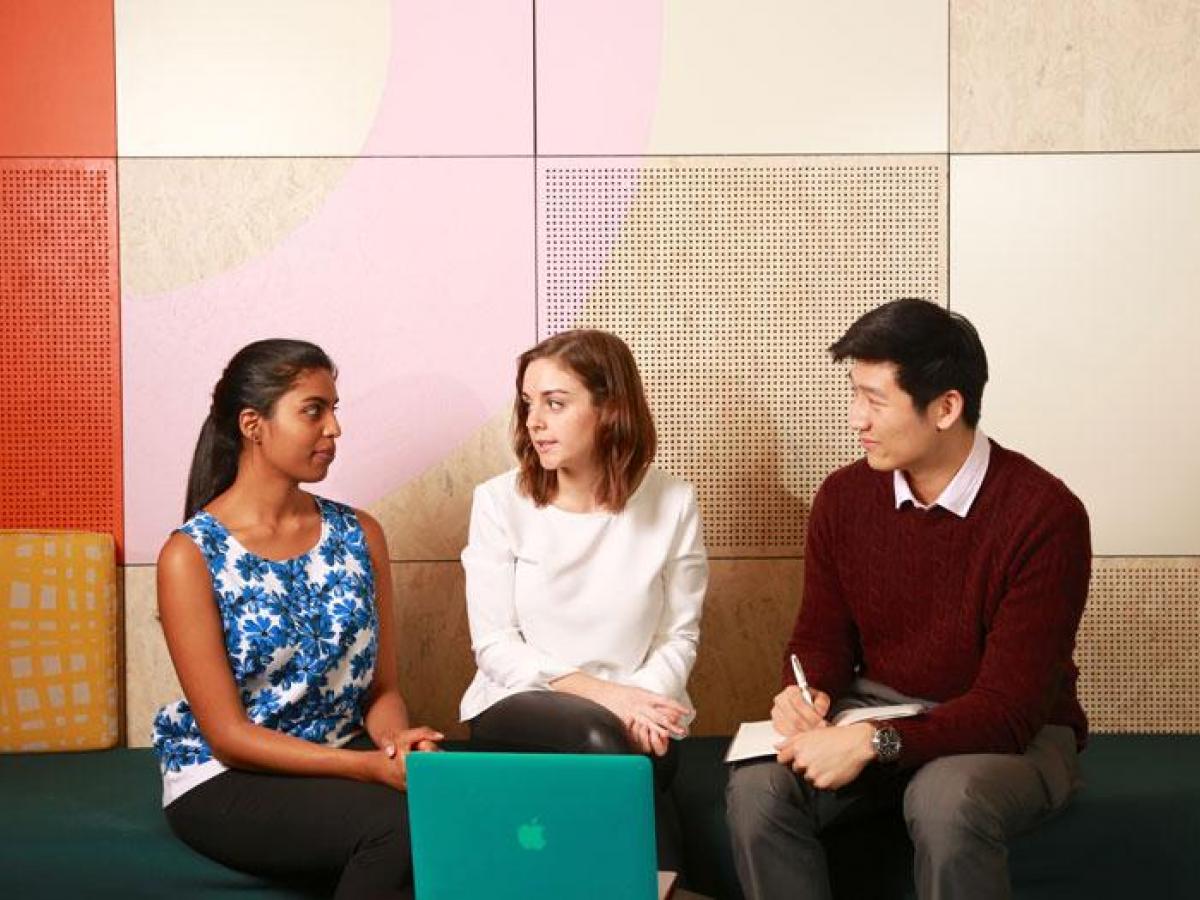Diversity, Equity and Inclusion
In the Faculty of Health and Medical Sciences, we’re actively working to achieve an inclusive environment that celebrates diversity and prioritises equity for its staff, students and community.
Diversity, equity and inclusion in every aspect of life, benefits us all. Our students gain an enhanced sense of community and belonging, and a greatly enriched environment and education. Our staff enjoy greater wellbeing, through inclusive and flexible work practices. Our University benefits from a diverse range of perspectives and experiences, delivering broader research success and impact.
That’s why we’re absolutely committed to enabling, supporting and celebrating it within our faculty and throughout the University.
The Faculty of Health and Medical Sciences People and Culture Committee

In 2014, we established our faculty's first Gender Equity and Diversity Committee (GED), with representatives from across the faculty. In 2024, in recognition of the broadening remit for inclusivity we relaunched as the Faculty of Health and Medical Sciences People and Culture Committee. The committee works with the University’s Organisational Performance, GED Committee and faculty leadership to facilitate the development and promotion of an inclusive and supportive environment. The committee champions diversity, equity, respect, engagement, belonging, and communication amongst academic staff, professional staff, titleholders, and students.
Our mandate is to encourage positive change across the faculty through such actions as:
- considering and making recommendations to the Executive Dean and Faculty Board on DEI- related organisational priorities
- promoting a culture of aspiration towards improved representation of people of Aboriginal, Torres Strait Islander and other backgrounds
- considering and recommending ways to remove impediments to equality of opportunity
- disseminating DEI best-practice to staff and students
- contributing to the faculty’s marketing and recruitment strategies
- providing a link between the faculty and the University’s GED Committee and Indigenous Education and Engagement Committee.
Chair
Associate Professor Shona Crabb, Deputy Dean, People and Culture
Deputy chair
Professor Joanne Bowen, Associate Dean, Gender Equity, Diversity and Inclusion
-
Supporting carers with the Dependant Travel Scheme
Each year the Faculty of Health and Medical Sciences offers a Dependant Travel Scheme to support staff who have caring responsibilities to participate in a conference held overseas or within Australia. Funding support may be made available to eligible staff as a contribution to the travel costs of the dependant relative or carer, or to employ a carer at the conference location (or locally if more suitable).
The Executive Dean will consider requests for the funding once the conference travel is approved. The number of awards made available is subject to faculty budgeting (including Fringe Benefit Tax implications), and Executive Dean and Faculty P&C Committee approval. For more information, please contact the Associate Dean, Gender Equity, Diversity and Inclusion.
-
Research and Career Development
We are committed to recognising societal challenges for members of our community that impair full workforce engagement. As such, here are a few opportunities designed to increase the ability of staff to reach their full potential through research success and increased networks.
The Barbara Kidman Fellowship
The Scheme offers opportunities to enhance, maintain, or re-invigorate research momentum, and assist the Fellowship recipients in applying for, and assuming, enhanced roles in the near future. Preference will be given to those staff whose research momentum has been affected by caring responsibilities, resulting in career-disruption or reduced working hours.
Barbara Kidman Fellowship Scheme | Researcher Portal | University of Adelaide
The Healthy Development Adelaide Women’s Research Excellence Award
To recognise and celebrate excellence of research achievement by women working in the field of developmental health. To raise awareness of and support career development for women mid-career researchers.
Women's Excellence in Research Award | Healthy Development Adelaide | University of Adelaide
Women’s Professional Development Network
Women's Professional Development Network | University of Adelaide
Academic Women’s Forum
-
Groups and Support Services
The University and Faculty are continuously developing groups and services to support all members of the University community. Please follow the links below to learn more
The University's ALLY Network provides support and advocacy to people who identify as being lesbian, gay, bisexual, transgender, intersex and queer. A number of faculty staff and students are ALLY Network members, and new members are welcome to join at any time. You may also like to register for an ALLY Training Workshop.
University study can be particularly challenging if you’re managing a disability or other health condition. The University’s Disability Support services will work with you to identify and implement effective ways to accommodate any such constraints, leaving you free to focus your energies on your studies.
-
Employee Assistance Program (Employee Assistance Program | Human Resources | University of Adelaide)
A confidential short-term, solutions focussed counselling, coaching and mentoring service, designed to help you and or your immediate family explore and implement strategies to address issues which may be having an impact on your wellbeing. It’s a great way to meet other women—and supporters of diversity—in STEM. Free for staff and immediate family members.
Wirltu Yarlu provides a range of support services to Aboriginal and Torres Strait Islander students, and its Student Services Officers can assist you throughout your time at the University.
-
